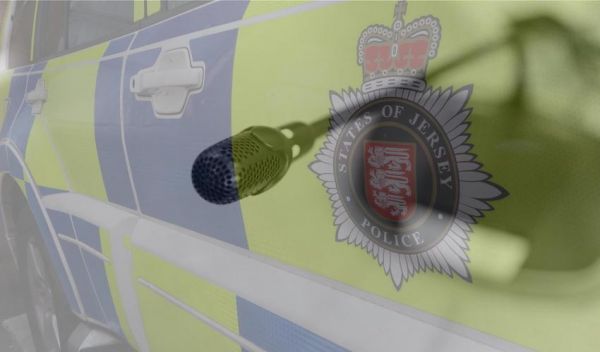
The trial of an elderly man accused of trying to get someone else to ‘confess’ to his alleged crimes, whilst he was a serving prisoner, has opened in the Royal Court.
74-year-old Charles David Barnett’s trial over a single allegation of attempting to pervert the course of justice opened yesterday as a jury of seven men and five women heard from the first witnesses for the prosecution.
Mr Barnett was convicted in 2015 of offences relating to indecent images of children after a trial, but he has always maintained his innocence. Having been sentenced to two years’ imprisonment, Mr Barnett unsuccessfully appealed both his conviction and sentence.
This case centres on documents Mr Barnett arranged from prison to be sent in order to get someone else to take responsibility for the offences he was convicted of.

Pictured: The trial centres on documents that the defendant arranged to be sent to someone else to 'confess' to crimes he was convicted of.
The prosecution allege that the 74-year-old’s actions amounted to an attempt to interfere with the course of justice.
Opening his case, Crown Advocate Richard Pedley told the jury: “Post-conviction, it is not an offence to protest your innocence; it is an offence to try and lay the blame at somebody else’s door."
During the first day of the trial, the Court heard from the man whom Mr Barnett tasked with conveying the documents for the other person to sign. Both sides accept that this man took the documents he had received from Mr Barnett to the Police station in April 2016.
Called to give evidence for the prosecution, this witness recalled that he had stayed in touch with Mr Barnett whilst he was serving his prison sentence. Facing questions from the Crown Advocate, he explained that Mr Barnett told him he was going to send through some documents and that he wanted this other person to sign them.
The letter accepts responsibility for downloading the indecent images of children and asks that Mr Barnett’s “name be cleared from blame for these images” and that he is “released from prison."
When asked what he did with these documents, the witness told the Court that he faced a “conundrum” in deciding what to do. He reasoned that throwing them away might amount to an offence in itself, but he also said that if the contents of the letter were true and this other person were involved in the offence then not handing it to the authorities would constitute him “failing [his] civic duties”.
During cross-examination from defence lawyer Advocate David Steenson, this witness said “I don’t think [Mr Barnett] ever accepted that he was guilty of the offences he was charged with.”
The Court was told that what was contained in the documents sent by Mr Barnett resulted in the Police trying to interview the individual concerned, but when he was brought to the Police station he was deemed ‘unfit’ to be interviewed by the Forensic Medical Examiner.
The examiner who assessed this individual – Dr Martin Barrett – also gave evidence on the first day of the trial. After conducting a series of tests, the doctor deemed the individual to have “severe cognitive impairment” and that “he wasn’t fit for interview.”
Explaining the need for carrying out this kind of assessment, Dr Barrett told the jurors: “The reason people are assessed is because there’s always a risk of vulnerable people making a false confession."
Detective Constable Matthew Coleman read extracts from Mr Barnett’s police interview in relation to the documents for the Court.
During his Police interview, the Court heard that Mr Barnett denied that his actions amounted to perverting the course of justice.
He told the investigating officer that he didn’t understand why he was at Police HQ, saying: “The boot’s on the other foot. I’m trying to get justice, not pervert the course of justice.”

Pictured: The beginning of Mr Barnett's Police interview was read to the Court.
Mr Barnett admitted that he had prepared the letters and that he intended for the individual to sign them. During the interview Mr Barnett claimed that he had been “wrongly imprisoned” and he described the letters as “an offer for [the other person] to admit to what he’d done.” He also claimed that he had been advised to do this by his lawyer at the time.
“I didn’t try to pervert the course of justice, I tried to bring someone to justice.”
When asked why he hadn’t mentioned this person’s name during his original trial or at his appeal case, Mr Barnett said: “I thought that I had sufficient evidence that I wouldn’t be found guilty anyway.”
The defendant added that he “didn’t want to implicate him at that time” and then he “changed [his] mind”.
Elsewhere on the opening day of the trial the jury heard from Detective Sergeant David Hill who headed up the original indecent images investigation.
Commissioner Julian Clyde-Smith is presiding.
The trial continues.
Comments
Comments on this story express the views of the commentator only, not Bailiwick Publishing. We are unable to guarantee the accuracy of any of those comments.